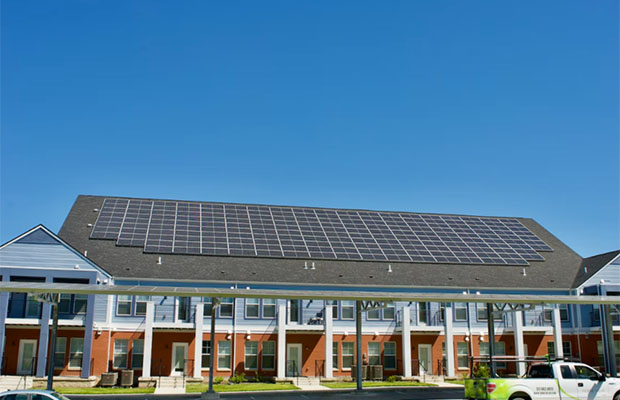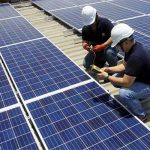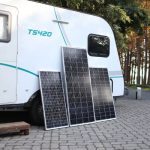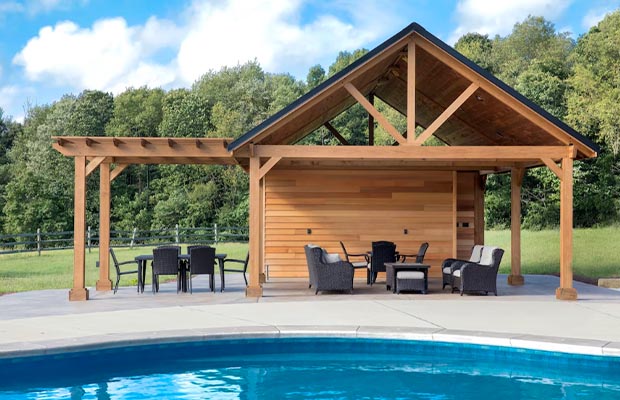You’ve come to the right place if you reside in Texas and are debating whether it is worthwhile to install solar panels.
Is solar worth it in Texas? In Texas, solar energy is indeed worthwhile. In fact, solar panels are worth it in most areas, though certain factors – including the cost of electricity, available incentives, the climate, and the sun angle – will all impact how quickly you break even on your investment relative to other areas.
Whether solar panels are worthwhile for the majority of Texas homeowners will ultimately depend on your home’s design and energy requirements, as discussed in this article.
Table of Contents
Do Solar Panels Add Value To A House In Texas?
Solar panels are frequently regarded as a useful addition to a house. A study from the Lawrence Berkeley National Laboratory found that an appropriately installed solar system could raise a home’s value by up to $15,000. Solar panels could, however, lower the value of the house if they are not installed correctly.
Read More: Do Solar Panels Increase Home Value In Texas?
Advantages Of Solar Panels In Texas
We’ll begin by outlining the advantages of solar energy in Texas in order to get things off to a good start. Let’s dig in.
Renewable Energy
Solar energy is almost limitless and clean, in contrast to fossil fuels, which have a limited supply and emit noxious gases. Solar panels function by capturing sunlight and converting it into electricity, which can then be used to power homes, other buildings, and even automobiles. You can even use solar energy to create steam or heat water.
Save Money On Electricity
Solar energy is a smart investment over the long run, even though solar panels in Texas (and elsewhere, of course) may initially cost more than other forms of energy. You will produce and use your own electricity, spending less on electrical bills.
Even though your home has a solar energy system, your electricity bill may still be high. The system may be broken, or there may be another issue.
Read More: How Much Are Solar Panels in Texas?
Protect Home From Outages
As they are not connected to the conventional power grid, solar panels will continue to produce electricity even if the power is out. As simple as that.
Cost-effective
Texas has some of the highest electricity prices in the US, but solar energy systems there can significantly lower monthly expenses. This state also provides a range of financial incentives for solar panel installation.

Nex Metering
One of the most advantageous solar incentives in Texas and many other states is net metering. It is a billing arrangement between utility customers and their electricity providers. Texas has an unregulated grid, so net metering enables qualified customers who produce their electricity from renewable sources to receive a credit on their electric bill for the excess power they produce. This credit can be used by consumers to reduce the price of their future electricity usage.
Federal Tax Incentive
The federal solar tax credit for 2022 (Investment Tax Credit or ITC) allows homeowners to claim a credit of 26% of the solar panel installation cost by the end of the year. Expect a 23% incentive if you want to install a solar panel system in 2023. Both new and existing homes are eligible for the credit.
Local Solar Panel Rebates In Texas
There are currently no statewide solar credits or rebates available in the state of Texas. In the same way, Texas does not have any general solar buyback programs. Even so, numerous local governments provide financial incentives for the installation of solar energy systems in homes and businesses. Here are some examples of solar tax credit options you can take advantage of in 2022:
- Austin Energy: a rebate of $2,500 and its Value of Solar Tariff
- CPS Energy(refers primarily to San Antonio solar power)
- Residential property: a rebate of $2,500 per project plus a $500 premium for projects that utilize local modules
- Commercial property: $0.60 per AC Watt for the first 25kW, $0.40 after, plus a $0.10 premium for projects that utilize local modules
- Oncor: Residential Solar Program connects you with your local providers to help you calculate the value of these Oncor Texas solar panel incentives
- AEP Texas Incentive
- Residential property (fixed incentives): $0.5 per Wdc up to 2.999 kWdc, $1,500 for up to 4.999 kWdc, $2,250 for up to 7.499 kWdc, and $3,000 for up to 30 kWdc $0.50/Wdc
- Commercial property (tiered incentives): $0.50 per Watt for up to 25 kWdc, $0.25 per Watt for up to 200 kWdc
- There is no regulated market in Dallas or Houston, so each customer can pick their own provider. That means that providers’ rebates and solar buyback programs for solar panels in Houston and Dallas are variable.
Property Tax Exemptions
Texas residents who put solar panels on their homes are eligible for a tax break equal to the system’s assessed value. This exemption covers the price of installation as well as the cost of the solar panels themselves on both commercial and residential properties. It covers both brand-new construction and remodeling initiatives.
Solar Rights Law
This law prevents homeowners associations from forbidding solar panels on their properties. This means that in Texas, there are no HOA restrictions that could prevent you from installing a residential solar system.
Disadvantages Of Solar Panels In Texas
Solar panels have disadvantages despite being a renewable energy source. What to think about before buying a solar energy system, as well as reasons why solar panels may not be worthwhile for all homes.
Not The Best For Every Home
Not all homes in Texas receive the same amount of sunlight, despite being one of the sunniest states in the union. For instance, northern Texas homes may not receive as much sunlight as southern Texas homes, which reduces the efficiency of solar panels. For solar panels to produce enough energy to eventually get you off the grid, your home also needs to meet a number of other requirements.
A possible solar panel inefficiency caused by the home’s location in the shade is one issue that can be quickly resolved. Learn more about the solutions that might be found.
Upfront Cost
In Texas, the average price to install a solar panel is between $11,432 and $15,468. Before federal tax credits and other financing options, this means that the average price of solar panels in Texas is only about $2.69 per Watt.
Of course, the price to install solar panels in Texas varies based on things like monthly electricity usage, the kind and brand of solar panels, the number of hours during the day when the sun is at its strongest, and the number of solar panels. Feel free to check the solar panel cost calculator for Texas to see the cost estimates.
Even though it’s safe to say that Texas’s initial cost of going solar has decreased, many homeowners may still find it prohibitive.
Maintenance Cost
Solar panels are not too expensive to maintain, but improper care can lead to inefficient and possibly forever broken systems (which leads to more money spent), so you must regularly clean the panels to ensure they are working properly. Occasionally, the panels may also need to be replaced.
Here is what you can expect to pay for solar system maintenance: a 2kW system with ten panels will cost, on average, between $300 and $700 to inspect and clean.
Payback Time
Around 12 years is the typical payback period for solar panels. Once more, to some, it may seem like an interminable period of time. But hey, according to Energy Sage, you stand to save more than $16,000 after 20 years.
Texas Gets How Many Hours Of Sunlight Per Day?
On average Texas receives around 4.8 kWh/M2. However, if you would like to see your exact peak sunlight hours we recommend checking out the map below:
Why is it useful for you to be aware of when the sun is at its strongest in your area?
In order to determine what size solar system will best meet your needs, this information is crucial, along with your electricity consumption.
More importantly, you should be aware of the cost of a solar system and the time it will take you to recoup your initial investment.
When you know this, you can decide if solar panels are a good fit for your needs.
The Best Solar Panel Orientation In The Texas Area
The best orientation for solar panels in Texas is typically thought to be the south, though there may be exceptions depending on your precise location. In addition to spending the majority of the year in the southern hemisphere, solar panels that face south receive more direct sunlight and experience less daytime shading from nearby trees and other objects.
Best Tilt Angle
It would be best to tilt solar panels so that they can capture the most sunlight. Typically in Texas, solar panels are angled between 30 and 45 degrees (or at least they should be). How much of an increase in power output can we expect from properly tilted solar panels? You can observe an increase in energy production of up to 25%.
FAQs
How much money can you save in Texas using solar power?
The average household in Texas spends about $1,801 a year on electricity, but that number can be decreased by up to$960 a year with solar panels.
Is solar energy free In Texas?
Solar panels aren’t offered for free in Texas, unfortunately. Nevertheless, there are numerous programs available that let you have solar panels installed for nothing or for a very low cost. While utility companies offer some of these programs, the state government offers others.
Can you resell electricity in Texas to the grid?
If you have a renewable energy source, such as solar or wind power,), you may be able to sell the excess electricity that you generate back to the grid. You can select your electricity provider in markets with deregulated electricity, such as Texas. This indicates that if your provider offers net metering, you might have the choice to sell electricity back to the grid.
How long do solar panels last in Texas?
On their panels, the majority of manufacturers offer a 25-year warranty. But many variables, such as the panel’s quality and the amount of sunlight it receives, affect how long a solar panel will actually last. Extreme temperatures, such as high or low ones, generally cause solar panels to lose efficiency. In the scorching Texas sun, are solar panels worthwhile? In Texas, they should last up to 30 years (and even longer with regular maintenance).





